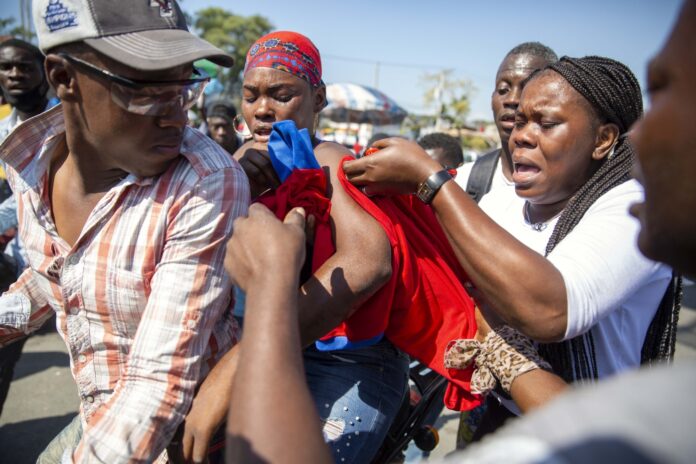Ardain Isma
CSMS Magazine
Haiti, a nation grappling with political instability, socio-economic challenges, and natural disasters, has long been a frequent subject of international concern. Concern here is shallow at best, for despite the incessant cry of the people of Haiti for popular democracy, those who pretend to be concerned about the country’s misery have repeatedly ignored this cry. Instead, as always, they propose and usually succeed in getting their way: deploying an international military force under the umbrella of the United Nations. The past few weeks, the old maneuvering to send another (UN) force in Haiti has garnered significant steam. Persistent gang violence and the quasi-ineffectiveness of the current government headed by Ariel Henry have provided cover for another occupation of Haiti. So, let’s delve into the current discussions surrounding a potential UN force in Haiti, examining the reasons for the proposal, its implications, and the various viewpoints on the matter.
A Quick Background
Haiti, the Caribbean nation situated on the western side of the island of Hispaniola, has faced significant difficulties in achieving political stability and economic prosperity. The country has experienced a series of political crises, corruption scandals, and social unrest, leading to repeated changes in government leadership and weakening institutions. Additionally, natural disasters, including the devastating earthquake in 2010 and subsequent hurricanes, have further exacerbated the country’s challenges.
Rationale for a UN Force
The proposal for a UN force in Haiti stems from the need for enhanced security and stability. Proponents argue that such a force could help maintain law and order, support institutional reforms, protect human rights, and provide assistance in disaster management. The UN has previously deployed peacekeeping missions in Haiti, with the most recent being the United Nations Stabilization Mission in Haiti (MINUSTAH), which concluded in 2017. Among those who support the idea of a new UN force, we find—surprisingly so—a section of the old petite bourgeoisie (former political activists), very vocal in their quest, citing they urgently need political space pour faire de la politique uninterrupted. The space they are advocating for is now occupied by some of the most dangerous figures in Haitian society: the gang leaders and their armed factions.
These opportunist politicians argue that a UN force could help reestablish a secure environment, which is vital for political stability, economic growth, and attracting foreign investment. The presence of a robust peacekeeping mission could deter armed gangs and criminal elements, facilitating a safer environment for the population. They say a UN force could assist in building and strengthening key institutions in Haiti, including the police, judiciary, and electoral bodies. By providing technical expertise and training, the international community can help establish transparent and accountable governance structures. What they would not say, however, is that there is no magic solution or quick fix to induced violence and dehumanization. Haiti is an impoverished country, not a poor one; it is a destabilized country, not an unstable one. The same UN mission that failed 6 years ago after many years of occupation cannot be today’s solution as Haiti’s misery exacerbates.
Opposing Views
Not everyone in Haiti favors a UN force as the solution to Haiti’s plaguing problems. They argue, for good reasons, which deploying a UN force infringes upon Haiti’s sovereignty, suggesting that the country should have the autonomy to address its challenges without external intervention. They assert that a UN force could undermine national identity and perpetuate a sense of dependency. Furthermore, they point out to the results of previous UN missions in Haiti, arguing that they have not achieved their intended objectives. They highlight instances of alleged human rights abuses committed by peacekeepers and question the efficacy and impact of future missions. They also argue that the focus should be on empowering Haitian institutions to address their own challenges. Instead of relying on external forces, efforts should be directed toward capacity building and long-term sustainable solutions that prioritize local ownership and expertise. In CSMS Magazine, we also support this point of view.
Note: Ardain Isma is chief editor of CSMS Magazine. He is a scholar, essayist, and novelist. He is the author of several critically-acclaimed books, including Midnight at Noon and Bittersweet Memories of Last Spring. His latest novel Last Spring was Bittersweet is set to be released on July 28th. But you can preorder by clicking this link: Last Spring was Bittersweet.


